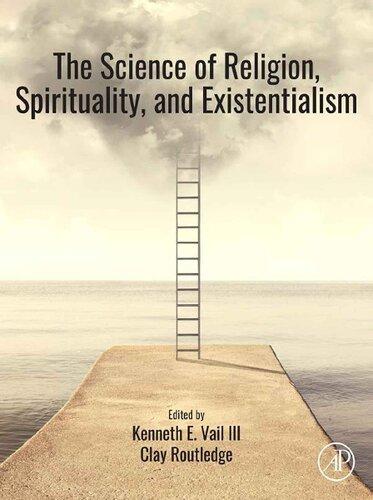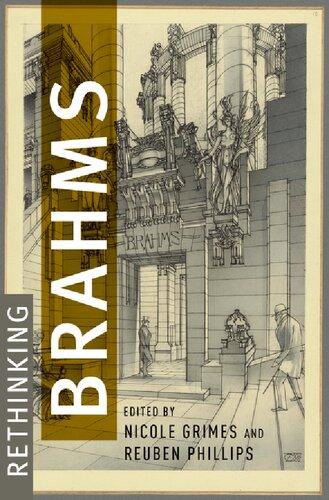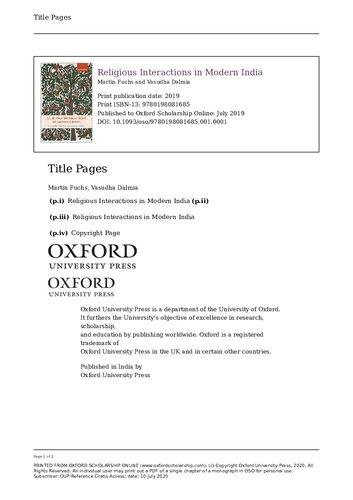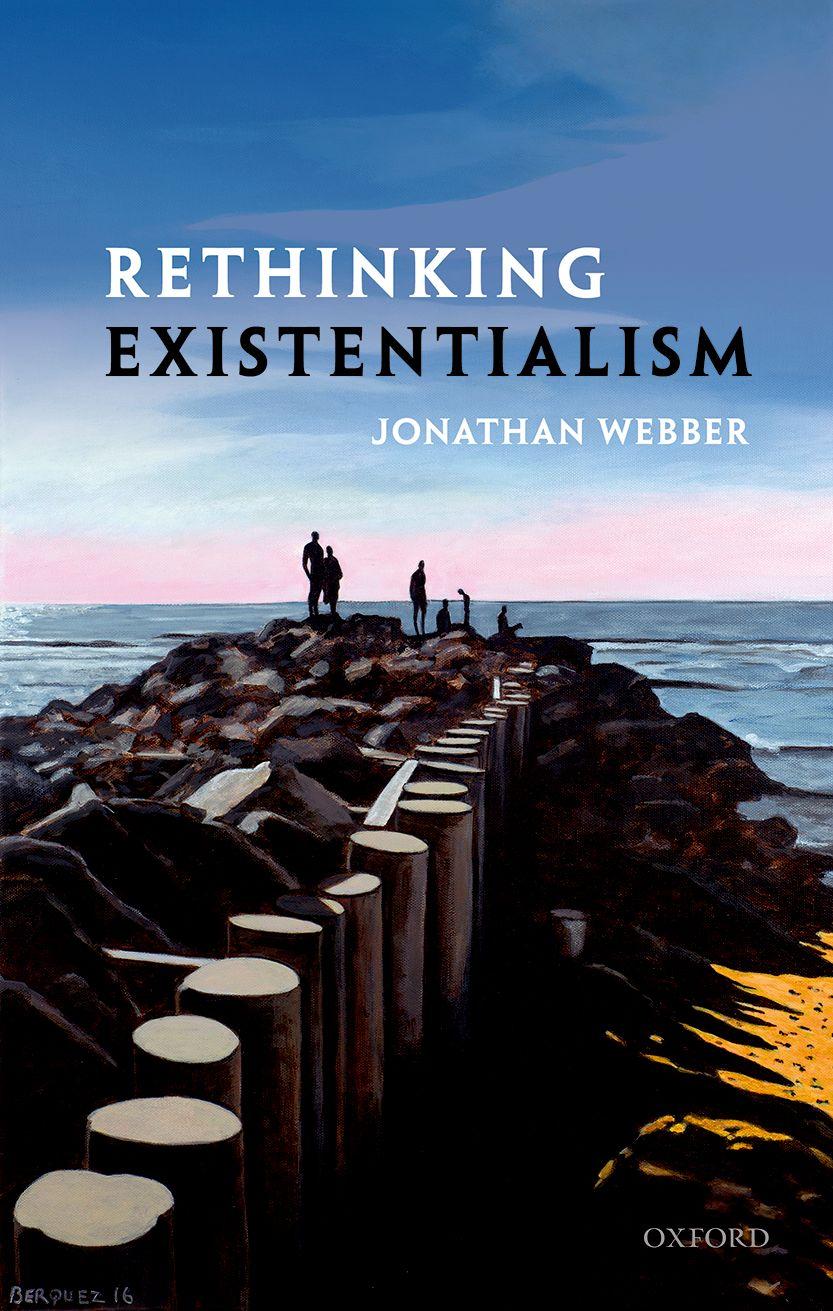Instant digital products (PDF, ePub, MOBI) ready for you
Download now and discover formats that fit your needs...
The Science of Religion, Spirituality, and Existentialism
Kenneth E. Vail Iii
https://ebookmass.com/product/the-science-of-religion-spiritualityand-existentialism-kenneth-e-vail-iii/ ebookmass.com
Rethinking Reich Sumanth Gopinath
https://ebookmass.com/product/rethinking-reich-sumanth-gopinath/
ebookmass.com
Rethinking Brahms Nicole Grimes
https://ebookmass.com/product/rethinking-brahms-nicole-grimes/
ebookmass.com
Schaum’s Outline of Electric Circuits 7th Edition Mahmood Nahvi
https://ebookmass.com/product/schaums-outline-of-electriccircuits-7th-edition-mahmood-nahvi/
ebookmass.com
Ours: A Novel Phillip B. Williams https://ebookmass.com/product/ours-a-novel-phillip-b-williams/
ebookmass.com
Religious Interactions in Modern India 1st Edition Martin Fuchs (Editor)
https://ebookmass.com/product/religious-interactions-in-modernindia-1st-edition-martin-fuchs-editor/
ebookmass.com
Clinical neuroanatomy Lange 29th Edition Stephen Waxman
https://ebookmass.com/product/clinical-neuroanatomy-lange-29thedition-stephen-waxman/
ebookmass.com
Challenging Conceptions: Children Born of Wartime Rape and Sexual Exploitation 1st Edition Kimberly Theidon (Editor)
https://ebookmass.com/product/challenging-conceptions-children-bornof-wartime-rape-and-sexual-exploitation-1st-edition-kimberly-theidoneditor/
ebookmass.com
Tiroidectomia mediante cervicotomia 1st Edition
R.Kania(Professeur Des Universités
https://ebookmass.com/product/tiroidectomia-mediante-cervicotomia-1stedition-r-kaniaprofesseur-des-universites/
ebookmass.com
What Happened to the Vital Center? Presidentialism, Populist Revolt, and the Fracturing of America Nicholas Jacobs
https://ebookmass.com/product/what-happened-to-the-vital-centerpresidentialism-populist-revolt-and-the-fracturing-of-americanicholas-jacobs/ ebookmass.com
RethinkingExistentialism Rethinking Existentialism JonathanWebber
GreatClarendonStreet,Oxford,OX26DP, UnitedKingdom
OxfordUniversityPressisadepartmentoftheUniversityofOxford. ItfurtherstheUniversity’sobjectiveofexcellenceinresearch,scholarship, andeducationbypublishingworldwide.Oxfordisaregisteredtrademarkof OxfordUniversityPressintheUKandincertainothercountries
©JonathanWebber2018
Themoralrightsoftheauthorhavebeenasserted
FirstEditionpublishedin2018
Impression:1
Allrightsreserved.Nopartofthispublicationmaybereproduced,storedin aretrievalsystem,ortransmitted,inanyformorbyanymeans,withoutthe priorpermissioninwritingofOxfordUniversityPress,orasexpresslypermitted bylaw,bylicenceorundertermsagreedwiththeappropriatereprographics rightsorganization.Enquiriesconcerningreproductionoutsidethescopeofthe aboveshouldbesenttotheRightsDepartment,OxfordUniversityPress,atthe addressabove
Youmustnotcirculatethisworkinanyotherform andyoumustimposethissameconditiononanyacquirer
PublishedintheUnitedStatesofAmericabyOxfordUniversityPress 198MadisonAvenue,NewYork,NY10016,UnitedStatesofAmerica
BritishLibraryCataloguinginPublicationData
Dataavailable
LibraryofCongressControlNumber:2018932578
ISBN978–0–19–873590–8
Printedandboundby CPIGroup(UK)Ltd,Croydon,CR04YY
LinkstothirdpartywebsitesareprovidedbyOxfordingoodfaithand forinformationonly.Oxforddisclaimsanyresponsibilityforthematerials containedinanythirdpartywebsitereferencedinthiswork.
ToSuzi,Tilly,andLettie Preface ThisbookarguesforanewconceptionofexistentialismthroughcomparativeanalysesoftheworksofSimonedeBeauvoir,AlbertCamus, FrantzFanon,MauriceMerleau-Ponty,andJean-PaulSartrepublished between1942and1952.Thetermwas firstgivenadefinitionbyBeauvoir andSartreinautumn1945,whentheyappropriateditasabrandname fortheirsharedphilosophy.Ithassincebeenappliedverywidely, naminganextensiveandlooselyassociatedassortmentofthinkersand artists.Byreturningtotheoriginalde finitionandanalysingcloselythe worksthatitdescribes,aswellassomerelatedworkspublishedbytheir friendsandcolleagues,wecanarticulateapreciseunderstandingof existentialismthatallowsustoidentifynewcontributionsitcanmake tophilosophy,psychology,andpsychotherapy.
The firstchapterpresentsthebook’soverallargument.Thesecond advancesanewanalysisof TheOutsider aspremisedonaconceptionof humannaturethatshowsCamustoalreadybeopposedtoexistentialism inthisnovel.ThethirdarguesthatMerleau-Ponty’sargumentagainst Sartre’stheoryoffreedomfails,inpartbecausehedoesnotidentifyhis targetpreciselyenough.ThefourtharguesthatBeauvoir’snovel She CameToStay dramatizesherdisagreementwithSartreoverthemetaphysicalstructureofhumanfreedom.Beauvoirconsidersfreedomto requirethatprojectsgatherinertiaastheyarepursued,whereasSartre considersittorequirethatprojectsneverhaveinertiaoftheirown.The fifthdevelopsthisdisagreementthroughreconsideringFreud’sinfluence onthedevelopmentofexistentialismandthedistinctionbetweenBeauvoir’sformofexistentialpsychoanalysisin TheSecondSex andSartre ’sin BeingandNothingness.Thesixtharguesforanewinterpretationof Sartre’splay HuisClos,arguingthatitdramatizesSartre ’sviewthatitis badfaith,thecommitmenttoaspeci ficmistakenviewofhumanexistence,thatcondemnsinterpersonalrelationstobeingfundamentally conflictual.
Atthispoint,thebookturnsfromthetheoryofhumanbeingatthe coreofexistentialismtoitsculturalandethicalaspects.Theseventh chapterarguesthatSartre ’ s firstattempttogroundaculturaltheoryin
hisexistentialismfailsbecauseitinevitablyreliesonanentirelyunexplainablecoincidence.Forthisreason,thechapterargues,SartreabandonedhisinitialtheoryoffreedominfavourofacceptingBeauvoir’ s theory, firstdetailinghisrevisedformofexistentialismin SaintGenet in 1952.TheeighthchapterarguesthatFanon ’ s BlackSkin,WhiteMasks, publishedinthesameyear,isfundamentallyaworkofexistentialism thatrestsonthesedimentationofprojects.TheninthoutlinesFanon’ s andSartre ’seudaimonistethicalargumentsfortheexistentialistvirtueof authenticity,whichistherecognitionofandrespectforthetruestructure ofhumanexistence.ThetentharguesthatBeauvoirhaspresentedan importantargumentforacategoricalimperativeofauthenticity.
Thesedetailsandintricateinterrelationsofthesecentraltextsof twentieth-centuryEuropeanthoughthavebeenobscuredbytheloose classificationofamuchbroaderrangeofthinkersandartistsasexistentialists.Uncoveringthesedetailsallowsustopinpointmorepreciselythe philosophicaltheoriesthatBeauvoirandSartreindicatedasde fining existentialismin1945,thedifferencesbetweenthem,andthereason whySartrehadadoptedBeauvoir’swithinafewyears.Thetheorythat theybothsettleduponandthatFanonalsoarticulatedin1952,therefore, shouldbeconsidereddefinitiveofexistentialism.The finalchapter sketchessomecontributionsthatexistentialismsounderstoodcan maketoourunderstandingofthefunctioningofthemind,thedevelopmentofpersonalcharacterandculturalidentity,thegroundingofethical andmoralvalues,andthepurposesandpracticeofpsychotherapy.
Acknowledgements Thisbookwasdraftedduringaperiodofresearchleavefundedby CardiffUniversity’sSchoolofEnglish,Communication,andPhilosophy andbyanAHRCResearchLeadershipaward(AH/M008614/1).Muchof theworkwascompletedinthelibrariesoftheUniversityofBristol, thankstoaVisitingFellowship,andintwonearbyculturalinstitutes, BostonTeaPartyandLittleVictories.Iamgratefultoalltheseorganizationsforfacilitatingthisproject.
Thebook’sargumentsweredevelopedthroughaBeauvoirworkshop, aFanonworkshop,andapsychotherapyconferenceallfundedbythe AHRCawardin2015–16,work-in-progressseminarsatBristoland Cardiffin2015,andatalkgivenattheOxfordPost-KantianPhilosophy Seminar,UniversityofWolverhamptonRoyalInstituteofPhilosophy lectureseries,andFreedomThroughMaterialityconferenceatRadboud Universityin2017.Theseideaswere firstformulatedandlaterrefined throughtheundergraduateFrenchExistentialismmoduleatCardiff Universityin2013and2016.Iamgratefultotheparticipantsofthese forinsightfuldiscussionsandsearchingquestions.
IamespeciallygratefultoSarahBakewell,MarcBevan,JoannaBurchBrown,DarshanCowles,MattEshleman,AnthonyEverett,Lewis Gordon,ChristinaHowells,KathleenLennon,RafeMcGregor,Seiriol Morgan,KatherineMorris,SebastianNye,RichardPearce,Stephanie Rennick,SimonRobertson,StellaSandford,AlisonStone,andAlessandraTanesiniforresponsestochapterdrafts,totwoanonymous reviewersforOxfordUniversityPressfordetailedcommentsonthe wholedraft,andtoPeterMomtchiloffforhispatienceandsound judgment.
Ihopetohaveputallofthistogooduse.Afterall,asSartrepointed out,whatisimportantisnotwhatpeoplemakeofus,butwhatwe ourselvesmakeofwhattheyhavemadeofus.
WhatIsExistentialism? Whentheterm ‘existentialism’ becamepopularacrosstheartsand cultureoftheWesternworldintheaftermathoftheSecondWorld War,itwasdefinedbyitsmostprominentexponentsasasubstantive philosophicalposition.Butarticlesandbooksonexistentialismwritten inEnglisheversincehaveeschewedprecisephilosophicaldefinition, insteadidentifyingitlooselyasamovementofthinkersconcernedwith certainquestionsandtosomeextentprovidingsimilaranswers.These worksdisagreeoverwhichquestionsandwhichthinkerstoinclude, whichmakesitdifficulttoseewhythereisthoughttobeanygenuine movementhereatall.Categorizingdiversethinkerstogetherinthisway, moreover,hasdistortedthereceptionoftheirideasbyforegrounding superficialsimilaritiesattheexpenseofdeeperdisagreementsandfeatures thatdonoteasily fitthisclassification.Thisiswhyscholarsspecializingina particularthinkerwhoisregularlyclassifiedasexistentialistoftenrejectthat classification,asindeedhavesomeofthosethinkersthemselves.
Althoughtherearegoodhistoricalreasonsforthisdivergenceof writingsaboutexistentialismfromthesubstantivephilosophicaldefinitionsetoutatitsinception,thesereasonsdonotprovideanytheoretical justificationforpreservingthisdivergence.Inthisbook,wewillrecover anddelineateasharperandmorefruitfulunderstandingofexistentialism byreturningtothatoriginaldefinitionandusingittoanalysetheworks itdescribes.Thisallowsustoidentifyarangeofnewcontributionsthat classicalexistentialismcanmaketothetheoreticalmodelscurrently beingdevelopedanddeployedinsocialpsychology,philosophyof mind,moralphilosophy,culturaltheory,andpsychotherapy,andconverselytoreleasethepotentialforeachoftheseareasofinquirytoenrich oneanotherbyrefiningthisexistentialistperspective.
AsoriginallydefinedbySimonedeBeauvoirandJean-PaulSartre, existentialismistheethicaltheorythatweoughttotreatthefreedomat
thecoreofhumanexistenceasintrinsicallyvaluableandthefoundation ofallothervalues.Itisgroundedinatheoryofwhatitistobehuman thatSartresummarizedintheslogan ‘existenceprecedesessence’.One centralaimofthisbookistoarguethatBeauvoirandSartredidnotagree onthedetailsofthistheorywhenthey firstdefinedexistentialismin1945 andthatby1952SartrehadfoundgoodreasontoadoptBeauvoir’ s position.Thisagreedtheoryoffreedomisthereforethecanonicalexistentialistunderstandingofhumanexistence.Asecondcentralaimisto arguethattheethicaltheorybuiltonthistheoryofhumanbeingholds theretobebothamoralimperativeandstrongeudaimonistreasons torespecthumanfreedom.Thisconceptionofexistentialismwillbe sketchedinmoredetailacrossthe first fivesectionsofthischapter, beforewereturntoitsrelationtotheloosecategoryusuallyfoundin articlesandbooksonexistentialismandtheadvantagesofthissharper conceptionofexistentialism.
1.1ExistencePrecedesEssence BeauvoirandSartregavetheterm ‘existentialism ’ its firstcleardefinition inautumn1945,duringasustainedcampaignofpublictalks,interviews, andarticlesdesignedtopromotetheirsharedphilosophyandinfluence thenewculturalandpoliticalshapeofpost-warFrance,acampaign Beauvoirlaterdescribedas ‘theexistentialistoffensive’ (FC:46).¹Sartre gavehisversionofthisdefinitioninhispubliclecture ‘ExistentialismIs AHumanism’,subsequentlypublishedasabook.Beauvoirgavehersin ‘ExistentialismandPopularWisdom’,anarticleinthethirdissueofthe journal LesTempsModernes,ofwhichtheywerebothfoundingeditors.
Sartre’slecturewasdeliveredoffthecuffinachaoticsituation,whichis perhapswhyhemanagestoconfusehiscoremessagewiththeapparently incoherentsetofclaimsthatthereareChristianexistentialists,existentialismisaformofatheism,anditdoesnotmatterforexistentialists whetherGodexists(EH:20,27–30,53–4).Beauvoir’sarticleismore
¹WorksbyBeauvoir,Camus,Fanon,Freud,Heidegger,Merleau-Ponty,andSartreare indicatedbytitleabbreviationsratherthandates,toavoidconfusionbetween firstpublicationandeditionused.FulldetailsaregivenintheBibliographybysurnameandabbreviation,listedforeachauthorinorderof firstpublication.Allotherworksarecitedinthe usualway,bypublicationdateofeditionused.
carefullyconsideredandcomposed.ButitwasovershadowedbySartre ’ s lecture,partlybecauseSartrewasalreadyamajorliteraryandphilosophical figurebythetimeitwasdeliveredwhereasBeauvoirwasnotyet.
Sartre ’suseofaseriesofmemorableimagesandphrasesisperhaps alsowhyhislecturehadthegreaterimpact.Hisslogan ‘existenceprecedesessence’ isintendedtoconveytheideathatahumanbeinghasno inbuiltessence,noinnateor fixedpersonality,butinsteadcreatestheir essence,ortheircharacterandoutlook,throughthevaluesandprojects theychoosetoadopt(EH:22).Beauvoir,bycontrast,presentsthesame claimwithoutanyhandysoundbitetosummarizeit(EPW:211–13).
Sartre’sslogan,however,canseemparadoxical.Forifthisisindeedthe definingfeatureofhumanbeing,thenitmightseemtobeanessence thatalreadydefinesanypersonpriortotheiradoptinganyvaluesor projects.Itseemscontradictory,moreover,toclaimthatanyqualities ofapersonresultingfromtheirownundertakingscouldbeessentialto thatperson,giventhatthepersonistherebyclaimedtohaveexisted withoutthosequalities.
Thesedifficultiescanbedispelledbydistinguishingdifferentsensesof theterm ‘ essence ’.Inonesenseoftheterm,theessenceofakindofthingis thesetofpropertiesnecessaryforanitemtobethatkindofthing.One mightargue,forexample,thataspecificchemicalcompositionisessential towater,sothatnothingcouldbeasampleofwaterunlessithadthat chemicalcomposition.Inacloselyrelatedsense,theessenceofaparticular itemisthesetofpropertieswithoutwhichthatitemcouldnotexist.Ithas beenargued,forexample,thatitisessentialtoaparticularpersonthatthey aretheproductofaspecificactofconception,suchthattheverysame personcouldnothavebeenconceivedbydifferentparentsoronadifferent occasion(Kripke1980:112–13).Butneitherofthesesensescapturesthe inherentlyteleologicalconceptionthatAristotleoriginallydevelopedunder thename ‘totiêneinai’,aphrasesoobscurethathisRomantranslators inventedtheword ‘essentia’ forittohaveaLatinequivalent.
Inthisteleologicalsense,anessenceistherelationalpropertyofhavinga setofpartsorderedinsuchawayastocollectivelyperformsomeactivity (Witt2013).Ahouseisessentiallyashelterforlivingin,inthissense,which iswhyithaswallsandaroofforkeepingoutwindandrain,doorsfor entranceandexit,windowsforlight,andsoon.Likewise,theeyeis essentiallyanorganforseeing,whichiswhyithasaretina,alens,an opticnerve,andsoon,arrangedinaspecificway.Sartreisapplyingthis
senseof ‘ essence ’ tohumanindividuals.Hisclaimisthatapersondoesnot haveaninbuiltsetofvaluesthattheyareinherentlystructuredtopursue. Rather,thevaluesthatshapeaperson’sbehaviourresultfromthechoices theyhavemade.Aperson’sessenceisformedoftheirchosenvalues. Moreover,thissenseof ‘ essence ’ doesnotentailthatthepropertiesit identifiesarenecessaryfeaturesoftheirbearer.Thequalitiesthatexplain aparticularperson’sbehaviourneednotbenecessaryaspectsofthatperson, socouldhavebeenadoptedbythatindividualandcouldlaterchange.
Sartremakesitclearthathisviewthatpeopledonothaveinbuilt essences,inthissenseoftheterm,entailsthatthereisnosuchthingas humannature,noinbuiltessencecommonamongpeople.Humansare neitherinherentlyselfishnorinherentlyaltruistic,forexample.This contrastssharplywiththeviewofhumanexistencethatAlbertCamus developsinhisphilosophicalandliterarywritings.Camusisoften classifiedasanexistentialistdespiteexplicitlyrefusingthelabelina newspaperinterviewduringtheexistentialistoffensive,declaringthat ‘SartreandIholdnothingincommonandrefusetobeheldresponsible foroneanother’sdebts’ (IJD:345). ‘ThewholeeffortofGermanthought hasbeentosubstituteforthenotionofhumannaturethatofhuman situation’,hewroteinhisnotebookssoonafterwards,and ‘existentialism carriesthateffortevenfurther’,whereas ‘liketheGreeksIbelievein nature’ (CN:136).Indeed,aswewillseeinChapter2,hewasalready developingatheoryofhumannatureanditsgroundingofethicalvalue profoundlyopposedtoexistentialismbeforeheevenmetSartreand Beauvoirandwellbeforetheexistentialistoffensive.
1.2FreedomandSedimentation Despitetheirapparentagreementduringtheexistentialistoffensive, however,SartreandBeauvoirdisagreedprofoundlyaboutthestructure ofhumanagencyandfreedomatthisstageoftheircareers.Sartre ’ s versionoftheviewthatexistenceprecedesessencewasthatanindividual’soutlook,thereasonsforactionthattheyencounterandrespondto intheworld,dependonthevaluesattheheartoftheirprojects,which havenoweightorinertiaoftheirownbutaresustainedonlybythe agent’scontinuingtacitorexplicitendorsementofthem.Thisishis conceptionof ‘radicalfreedom ’,aswewillseeinmoredetailin Chapter3.Ifanagentchoosestoabandonaproject,thenthatproject
willoffernoresistancetotheagentovercomingit.Projectsareinterwovenintoaholisticcomplex,however,whichmeansthatthecostof abandoningaprojectmaybethatoneneedstoabandonorsignificantly modifymanyotheraspectsofone’svaluesystem.Butoneretains absolutefreedom,accordingtoSartre ’sinitialconceptionofexistentialism,todothis.
Beauvoir,bycontrast,understandstherepeatedendorsementofa projecttoincreaseboththatproject’sowninertiaandtheinfluenceit exertsovertheindividual’scognition.Thissedimentationofprojectsis centraltohertheoryofthesocialconditioningofgenderin TheSecond Sex,publishedafewyearsaftertheexistentialistoffensive.Aswewillsee inChapter4,itisalsocentraltotheplotofherdebutnovel SheCameTo Stay,publishedinthesameyearasSartre’ s BeingandNothingness,two yearsbeforetheexistentialistoffensive.Indeed,theplotofthatnovel dramatizesherdisagreementwithSartreoverthenatureoffreedom:the contrastbetweenhertheoryofsedimentationandhisviewthataproject hasnoinertiaofitsownisreflectedintheattitudesofthenovel’stwo centralcharacterstotheirsharedlifeproject.Beauvoirholdsthatfreedomconsistsintheabilitytocommittoprojectsthatshapeone’soutlook andthatsedimentationisessentialtosuchcommitment.Sherecognizes thatprojectscanbecomesoembeddedthattheycanbedifficultto overcome,butherpositiondoesentailtheongoingfreedomtoalteror rejectanyprojectthroughthesedimentationofnewvalues.
Theconceptofsedimentationisalsocentraltothephilosophyof MauriceMerleau-Ponty,whohadbeenfriendswithBeauvoirandSartre sincetheywerestudentstogetherinthelate1920s(Bakewell2016: 109–14).Theirphilosophicalinfluencesandinterestsweresoclosely alignedduringthesubsequenttwodecadesthattheyareaptlydescribed as ‘aphenomenologicaltrio’ developingtheirideasthroughcollective criticaldiscussion(Howells2011:24).Merleau-Ponty’sprimaryfocus, however,isontheindividual’sunderstandingoftheworld,theknowledgethatallowsustonavigateandmanipulateoursurroundings. BeauvoirandSartrefocusprimarilyonanindividual’smotivations,the valuesweendorseandthereasonsforactionthatweencounterasa result.Merleau-Ponty’scentralconceptionofsedimentationistheprocessbywhichourknowledgeofourspatialenvironment,oursocial context,andourbodilyabilitiesbecomesembeddedintheintuitive understandingthatwerelyonforaction.ThiscontrastswithBeauvoir’ s
emphasisonthesedimentationofthevaluesthatmotivateusthrough shapingthereasonsforactionthatweexperienceinourenvironment.
Merleau-Pontydoesmention,brieflyandtentatively,akindofsedimentationofmotivation.Thisistowardstheendofhiscritiqueof Sartre’stheoryoffreedomintheclosingchapterofhis Phenomenology ofPerception,publishedin1945.Thiscritique,however,doesnotproperlyaddressSartre’stheory,aswewillseeinChapter3,partlybecause Merleau-Pontydoesnotrecognizethedistinctionbetweenourexperienceofthemeaningsofitemsinourenvironmentandourexperienceof thereasonsforactionthatourenvironmentpresents.Thesignthattells ustokeepoffthegrass,toborrowoneofSartre’sfamousexamples,hasa linguisticmeaningandinsomeculturalcontextsmayimplysome sanctionifitisdisobeyed.Butwhetheritisareasontokeepoffthe grass,accordingtoSartre,dependsonone’sownvalues.Ifyouvalue defyingauthorityforitsownsake,youmaywellexperiencethesignasa reasontostrideacrossthelawn.ItisperhapsMerleau-Ponty’sownfocus onthesedimentationofknowledgethatleadshimtomistakenlyread Sartreasholdingthatthemeaningsweencounter,ratherthanthe reasons,aredependentonourprojects.
Sinceexistentialismisdefinedbytheideathatexistenceprecedes essence,theideathatwehavefreedomoverthevaluesthatorganize ourexperienceandsoshapeourbehaviour,Merleau-Ponty’srejectionof thistheoryoffreedommeansthatheisnotanexistentialist,despitehis commitmenttothephilosophicalmethodologyofphenomenologythat drivesbothBeauvoir’sandSartre’sformsofexistentialism.Thisisnotto saythathisanalysesofthephenomenologyofexperiencehavenothing toofferexistentialism.Totheextenttowhichtheyareconsistentwiththe ideaoffreedomoverthevaluesthatshapethereasonsweencounter, existentialismcouldbeenrichedbyintegratingthemintoitsconception ofthehumanindividual.Buthisrefusalofanymetaphysicalconception offreedomastheindividual’sabilitytoshapetheirownessence,asthis wasdefinedintheprevioussection,classi fieshisoverallconceptionof agencyasstandinginoppositiontoexistentialism,justastheideaof humannaturethatCamusendorsesexcludeshistheoryofhuman existencefromtheexistentialistcamp.²
²Throughoutthisbook,Iusetheterm ‘metaphysical’ interchangeablywith ‘ontological’ todescribeanythingpertainingtothestructuresofbeing.Thus,metaphysicalfreedomis
1.3ExistentialismandtheMind OneoftheintereststhatBeauvoirandSartresharewithMerleau-Pontyis inthefoundationsofpsychology.Allthreeaimtoidentifytheessential structuresofthemindthroughtheirphenomenologicalanalyses.Indeed, thisisthecentralaimofSartre’sphilosophicalpublicationspriorto Being andNothingness andmotivatesthedevelopmentofthephilosophical methodologyhethendeploystodevelophisexistentialism(Webberforthcoming).Thiscentralaspectofexistentialismisobscuredbythecommon practiceofclassifyingMartinHeidegger’ s BeingandTime asaparadigmatic existentialistwork,despiteHeidegger’srejectionofthelabel.Forhisconcerninthatbookisultimatelywiththenatureofbeing,whichhe approachesthroughtheanalysisofhumanbeing(whichhecalls Dasein) thatalmost fillsthewholework.Heideggerarguesthatthisinvestigationof humanbeingisdistinctfromanyempiricalstudyofpsychologyandmust proceedwithoutpresuppositionsgroundedinpsychologicalvocabulary (B&T:§§9–10).Ifweseethisasaparadigmaticworkofexistentialism, thenwearelikelytoconcludethatexistentialistconcernwiththestructures ofhumanbeingeschewsanypsychologicalambition.
However,oncewehaveunderstoodwhatSartremeansbytheclaim that ‘existenceprecedesessence’ itbecomesclearthathisanalysisofthe structuresofhumanbeingrequiressometheoryoftheessentialstructuresofthemind.Sartredoestendtoavoidusingtheterm ‘mind’,which carriesconnotationsofaninnerrealmdistinctfromtheworld(seee.g. IPPI:5–7).Butthestructuresofconsciousness,perception,imagination, affectivity,deliberation,andrationalmotivationarecentraltohisanalysisofhumanbeing.Beauvoir’spublicationsofthe1940sarelikewise repletewiththeoriesofdesire,emotion,perception,andmotivation. Sinceaperson’ s ‘ essence ’,inSartre ’sfamousslogan,istheoverallstructuralpropertythatexplainstheirbehaviour,itmustorganizetheexperienceoftheworldthatmotivatesthatbehaviour.Moreover,sincethis thefreedomthatexistentialistsconsiderhumanagentstohaveovertheirownbeing,their abilitytoshapetheirownessence.ThisisdespitethedistinctionthatSartredrawstowards theendof BeingandNothingness between ‘ontology’ astheanalysisofthestructuresof beingand ‘metaphysics’ asthestudyoftheaetiologyofthoseontologicalstructures,astudy whichhedeclaresthathehasnotundertaken(B&N:639).SofarasIknow,Sartre’ s definitionof ‘metaphysics’ hereisentirelyidiosyncratic.Myuseinthisbookisnormalin contemporaryanglophonephilosophy.
essenceconsistsintheperson’sprojects,whichhavevaluesattheircore, theclaimedfreedomoverthisessencemustconsistintheirabilitytoalter thevaluesthatstructuretheirexperienceoftheworld.Thecentral ontologicalclaimofexistentialismthereforerequiresamodelofpsychologicalfunctioning,withthedifferencebetweenBeauvoir’sandSartre’ s versionsofthatclaimrequiringdifferentversionsofthismodel.
ThereasonHeideggergaveforrejectingthelabel ‘existentialist’ was thattheterms ‘existentia’ and ‘essentia’ carrymetaphysicalconnotations thatderailanyseriousattempttothinkclearlyabouttheontologyof humanbeingoraboutbeingingeneral,sotheslogan ‘existenceprecedes essence ’ mustberejected(LH:157–8).Thisdoesnotreflecttheoutlook of BeingandTime,however,whichwaswrittentwodecadesearlier.In thatbook,Heideggerdoesproclaim ‘thepriorityof “existentia” over “essentia”’ (B&T:§9).TheresemblancebetweenthisphraseandSartre’ s sloganispartofthereasonwhyHeideggerisoftenclassifiedasan existentialist.Butthisresemblanceismerelysuperficial.Heideggeris notusing ‘essentia’ hereintheAristoteliansensethatSartreuses ‘ essence ’.Rather,hemeansthepropertiesnecessaryforsomethingto beamemberofaspecifickind:tobethekindofthingthatweareisto haveaspecifickindofexistence,whichhethendescribesasstructuredby concernaboutone’sownexistence.Heidegger’sphrase,therefore,isnot aclaimaboutthemotivationsbehindanindividual’sbehaviourandso doesnotcommithimtoamodelofpsychologicalfunctioning.
Itisbecausetheirsharedtheoryoftheontologicalstructureofhuman beingdoesentailamodelofpsychologicalfunctioningthatbothSartre andBeauvoirdevelopdetailedcritiquesofSigmundFreud’spsychoanalysis.Bothwanttoretainsomeofhiscentralinsightsintohuman developmentandmotivationwhilerejectinghistheoreticalframeworkas mistakenlymechanistic.Theirformsofpsychoanalysisarenotmerely appliedspin-offsfromapurelyontologicalexistentialism.Rather,they explicitlydeveloptheirvarietiesofexistentialismastheoriesstandingin theFreudianpsychoanalytictradition,aswewillseeinChapter5.Thisis usuallyobscuredinanalysesofexistentialism.Thisispartlybecause SartreplaceshisargumentagainstFreud’stheoryoftheunconscious muchearlierin BeingandNothingness thanhismorenuancedandmore positiveengagementwithFreud ’sworkmorebroadly.Itisalsopartly becauseBeauvoir’sworkhasoftenbeenreadasapplyingexistentialist theoryratherthanascentraltothedevelopmentofthatphilosophyitself.
ButthisrelationbetweenexistentialismandFreudianpsychoanalysis hasalsobeenobscuredbythetendencyofFrenchphilosophersfromthe 1950sonwardstoendorsethebroadFreudiantraditionwhileexaggeratingthedistancebetweentheirownpositionsandexistentialism (Crowell2012:11–13).TogetherwiththeabsenceofFreudfromlists ofexistentialistthinkers,thishasledtoexistentialismbeingunderstood asanentirelyseparateintellectualtraditionthatprovidesanalternative topsychoanalysis.BeauvoirandSartreinfactbothpreservemuchthat they findvaluableinFreud ’swork.Theirobjectionisonlytohistheories ofthestructureofthemind,whichtheyargueareincoherentandfailto explainthephenomenatheyaredesignedtoexplain.Theirownanalyses ofpsychologicalfunctioningaredesignedinpart,aswewillseein Chapter5,toexplainthesephenomenaproperly,whilegivingsubstance totheclaimthatexistenceprecedesessence.
1.4TheInfluenceofOtherPeople ThedisagreementbetweenBeauvoirandSartreoverthenatureof humanfreedombecomesclearerandmoresignificantwhenweconsider theroleofotherpeopleintheformationofanindividual’ sessence. Beauvoir’stheoryofthesedimentationofprojectsaffordshersophisticatedaccountoftherolethatotherpeople ’sexpectations,encouragements,andadmonishmentsplayinthedevelopmentofgender,aswewill seeinChapter5.Achildiseffectivelydirectedtoadoptingprojectsthat arebuiltontherequiredvaluesfortheirgenderandthatincorporatethe requiredunderstandingofgenderroles.Astheseprojectsarecontinually reaffirmedthroughoutchildhood,thevaluesandsocialknowledgethey enshrinebecomemoredeeplysedimented.Thisaccounts,accordingto thetheoryof TheSecondSex ,forthedifferencesinvaluesandoutlook foundbetweenmenandwomen,forthewidespreadacceptanceof gendernorms,andindeedfortheirperpetuationbythoseinwhom theyhavebecomesedimented.Eachindividualisabletosubjectthis conditioningtocriticalappraisalandtorejectit,butitssocialprevalencemitigatesagainstthis.Thein fl uencethisconditioninghasovera person ’scognitioncannotberemovedexceptthroughanotherprocess ofsedimentation.
Sartre ’sinitialformofexistentialismprecludesthisaccountofother people’sinfluenceoveranindividual’sessence.Instead,accordingtothis
versionofexistentialism,whatmattersishowonerespondstotheviews thatotherpeoplehaveofoneself.Therearethreepossibleresponses.One istoaffirmone ’sfundamentalfreedom,therebyresistingtheideathat anotherpersonhascorrectlyidentifiedsome fixedpersonalitytraitthat onehas.Sartreconsidersthisresponseofauthenticitytoberare.The othertworesponsesaremorecommon,heclaims,andarebothformsof badfaith.Oneistoaccepttheotherperson’sviewofoneselfascorrectly identifyingsome fixedpersonalitytraitthatonehas.Butthisisnot satisfactoryiftheotherperson’sviewofoneselfconflictswithone’ s own.Theotheristodenythatonepossessesthistraitbyinstead affirmingsomecontrary fixedpersonalitytrait.Butthisleadstoaconflict betweenone’sself-imageandtheimageofoneselfthatotherpeople express.Itisthisviewthattheprojectofdenyingone’sfreedomover one ’sessenceineluctablyproducesconflictthatSartresummarizesinhis famouslinethat ‘Hellis ... otherpeople! ’ (HC:223),aswewillseein Chapter6.
Beauvoir’stheoryofsedimentationprovidesaclearexplanationof howspecificvaluescanbecomeprevalentamonganidentifiablecultural group,suchaswomenormen.Sartre’stheory,however,cannotprovide suchanexplanation.Thisfailureisdemonstrated,aswewillseein Chapter7,inhisattempttoexplaintheoriginsofJewishculturethrough thistheoryinhisbook Anti-SemiteandJew,writtenatthetimeofthe existentialistoffensive.ThecentralvaluesofJewishculture,hearguesin thatbook,arearesponsetoaclimateofanti-Semitichostility.This hostilitytakestheformofathoroughlynegativeimageofa fixedJewish personality.Theauthenticresponseofaffirmingone’sownfreedomisrare, arguesSartre,thoughhedoesnotsaywhy.Theusualresponse,hethinks, istoaffirm fixedpersonalitytraitsthatarecontrarytotheanti-Semite’ s imageofJewishness.Thisisaformofbadfaith,sinceitassertsa fixed personality.ThevaluescommonamongJewishpeople,arguesSartre,are thoseendorsedasthoughtheywerea fixedJewishnature,thevaluesthat aredirectlycontrarytotheanti-Semite’simageofJewishpeople.
Muchhasbeenwrittenabouttheshortcomingsofthisasatheoryof theoriginsofJewishculture,orindeedofanyculture.Onecentralfailure ofthetheoryisindicativeofadeepproblemwithSartre’sinitialformof existentialism.Thisisthefailuretoexplainwhyauthenticityisrareand badfaithiswidespread.Afterall,ifthisistruethenittooisacultural phenomenonthatstandsinneedofexplanationandSartre’stheoryhas
noresourcestoexplainit.Sartre’sinitialformofexistentialismcan groundaculturaltheory,therefore,onlyonthebasisofthisunexplainablecoincidence.Itseemstobeforthisreason,aswewillseein Chapter7,thatSartresoonabandonedhisinitialformofexistentialism andadoptedBeauvoir’stheoryofthesedimentationofprojects.Bythe timehewrote SaintGenet, firstpublishedin1952,hehadacceptedher viewthatprojectsincreaseininertiaandinfluenceastheycontinuetobe endorsed.Thisisthetheoryheemploystoexplaintheformationof Genet’scharacterandaesthetictaste.
Inthesameyear,FrantzFanonpublishedhis BlackSkin,WhiteMasks, whicharguesthatracialidentityisformedthroughthesedimentationof projects,thattherearenogenuinely fixedpersonalitytraitsofindividuals,andthattheproblemsofracismcanbeovercomeonlybygradually overcomingthosesedimentedprojectsandremovingthesocialstructuresconducivetothem.Thisis,aswewillseeinChapter8,aprofoundly existentialistwork.Fanon’stheoryofracializationhasmuchincommon withBeauvoir’stheoryofgender.Fanondoesnotseemtohaveread Beauvoir,butdoesdevelophistheorythroughcriticalanalysisofSartre ’ s initialformofexistentialism,alongsidemanyotherinfluences.We shouldaccept,therefore,thatthistheorycommontoBeauvoir,Sartre, andFanonin1952,accordingtowhichanindividual’sAristotelian essenceisformedthroughthesedimentationoftheirprojectschosen intheirspecificsocialenvironment,isthecanonicalformofthetheory thatexistenceprecedesessence.
1.5ExistentialismIsAHumanism Existentialismismorethanthatmetaphysicalandpsychologicaltheory, however.Existentialismistheethicaltheorythatweoughttotreatthis structureofhumanexistenceasintrinsicallyvaluableandasthefoundationofallothervalues.ThisiswhatSartremeansbycallingexistentialismaformofhumanism(EH:51–3).Thevirtueofauthenticityisthis respectforthestructureofhumanagency.Theexistentialistclaimthat thereasonsweexperienceintheworldaredependentonvalueswe endorseandcouldreplacehasoftenbeentakentoprecludeanyobjective ethics.Afterall,whatobjectivereasoncouldtherebetoadoptsome specificvalueifallreasonsaregroundedinvaluesthatarealready endorsed?Butthisthoughtistooquick.Therearetwopotentialanswers













